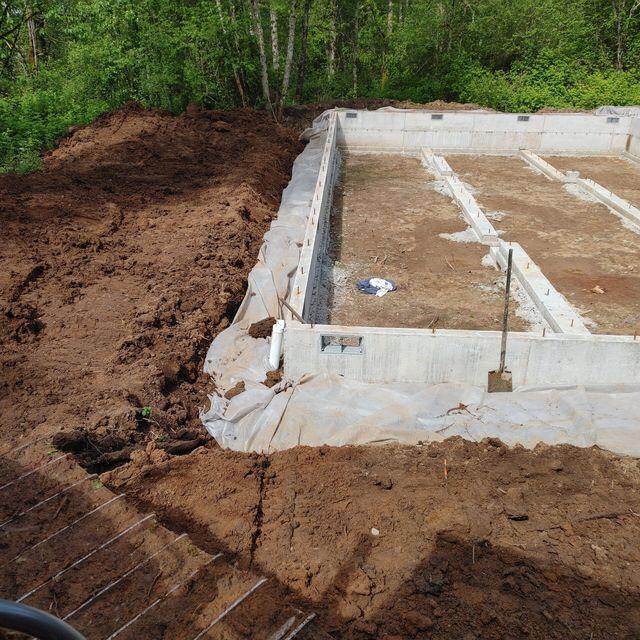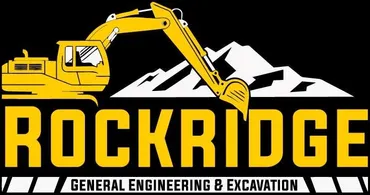YOUR #1 FULL SITE PREP EXPERTS!
CALL NOW- 360-564-5933
Licensed: ROCKRGE816DF - Over 35 Years of Experience | Emergency Services Available | Family and Locally Owned

Sustainable Site Preparation Practices: Washington's Eco-Friendly Approach
Intro:
Nestled between the Pacific Ocean and the rugged Cascade Mountains, Washington State is renowned for its breathtaking natural landscapes and unwavering commitment to environmental stewardship. As the construction industry evolves, so too do the practices that shape our built environment. In this article, we delve into the realm of sustainable site preparation practices in Washington, exploring how the state's eco-friendly approach is paving the way for a harmonious coexistence between development and the preservation of its pristine ecosystems. For help with full site preparation in Centralia, Washington and nearby contact us here.

A Green Vision: Washington's Environmental Ethos
At the heart of Washington's sustainable site preparation practices lies a deeply ingrained environmental ethos. The state's residents and policymakers recognize the delicate balance between progress and preserving the natural beauty that defines their home. From the bustling metropolis of Seattle to the tranquil corners of the Olympic Peninsula, sustainable practices are not just a trend – they are a way of life.
Rainwater Harvesting and Management
In a state where rainfall is abundant, innovative rainwater harvesting techniques have emerged as a cornerstone of sustainable site preparation. Rainwater harvesting involves the collection, storage, and utilization of rainwater for various purposes, from irrigation to flushing toilets. This practice not only conserves precious freshwater resources but also reduces stormwater runoff, minimizing erosion and pollution of local water bodies.
Washington's embrace of rainwater harvesting is evident in its architecture and infrastructure. Rain gardens, permeable pavements, and green roofs have become ubiquitous features, allowing rainwater to be absorbed and filtered naturally, replenishing aquifers and nurturing local flora.
Native Landscaping and Biodiversity
When it comes to site preparation, Washington's dedication to native landscaping is nothing short of inspiring. Incorporating native plants into project designs promotes biodiversity, restores natural habitats, and enhances the overall aesthetic appeal. Native plants are adapted to the local climate, requiring less water and maintenance, thus reducing the ecological footprint of landscaping efforts.
Developers and landscapers collaborate to create designs that mirror the state's diverse ecosystems. From the lush forests of the Olympic Peninsula to the arid landscapes of Eastern Washington, native landscaping fosters a sense of place while supporting pollinators, birds, and other wildlife crucial to the region's ecological balance.
Renewable Energy Integration
Washington's commitment to sustainability extends beyond the visible landscape. Sustainable site preparation practices often incorporate the use of renewable energy sources to power construction equipment, lighting, and temporary facilities. The state's abundant hydroelectric power provides a clean energy foundation that aligns with the vision of a carbon-neutral future.
Solar panels and wind turbines are increasingly integrated into construction sites, harnessing the power of the sun and wind to reduce reliance on fossil fuels. Not only do these practices decrease the environmental impact of site preparation, but they also showcase Washington's role as a pioneer in renewable energy adoption.
Erosion Control and Stormwater Management
With its rugged terrain and copious rainfall, Washington faces unique challenges in managing erosion and stormwater runoff during site preparation. Sustainable erosion control practices focus on preserving soil integrity, preventing sediment runoff, and safeguarding nearby water bodies.
Innovative erosion control techniques, such as silt fences, bioengineering solutions, and sediment basins, are employed to mitigate the effects of construction activities on the environment. These measures safeguard water quality and aquatic habitats, ensuring that the state's delicate ecosystems remain unharmed.
Community Engagement and Education
Washington's commitment to sustainable site preparation extends beyond the construction site itself. The state actively promotes community engagement and education to foster a culture of environmental responsibility. Workshops, seminars, and public awareness campaigns empower residents, developers, and stakeholders to make informed decisions that prioritize sustainability.
Local initiatives often encourage the adoption of sustainable practices at every stage of development, from planning to execution. The collective effort to educate and involve the community underscores Washington's dedication to building a future where progress and environmental protection walk hand in hand.
Conclusion
In the shadow of towering mountains and beside the tranquil waters of Puget Sound, Washington State is setting a remarkable example of how sustainable site preparation practices can transform the construction industry. Rainwater harvesting, native landscaping, renewable energy integration, erosion control, and community engagement form the bedrock of the state's eco-friendly approach.
As the world grapples with the challenges of climate change and environmental degradation, Washington's dedication to sustainability offers a beacon of hope. By harmonizing development with the preservation of its natural splendor, the state showcases a blueprint for a future where progress and the planet thrive in unison. As construction projects continue to shape the landscape, Washington's commitment to sustainable site preparation serves as a testament to the transformative power of responsible development.

AVOID COSTLY MISTAKES:
Do NOT hire an excavating contractor without first reading our free guide:
The ULTIMATE Excavation & Septic "Success Guide."

We Offer Excavation Services You!
If you don't see your specific area contact us and we may still be able to help or give a referral.
All rights reserved | Privacy policy | Client Support Area | Terms & Conditions | Privacy policy






